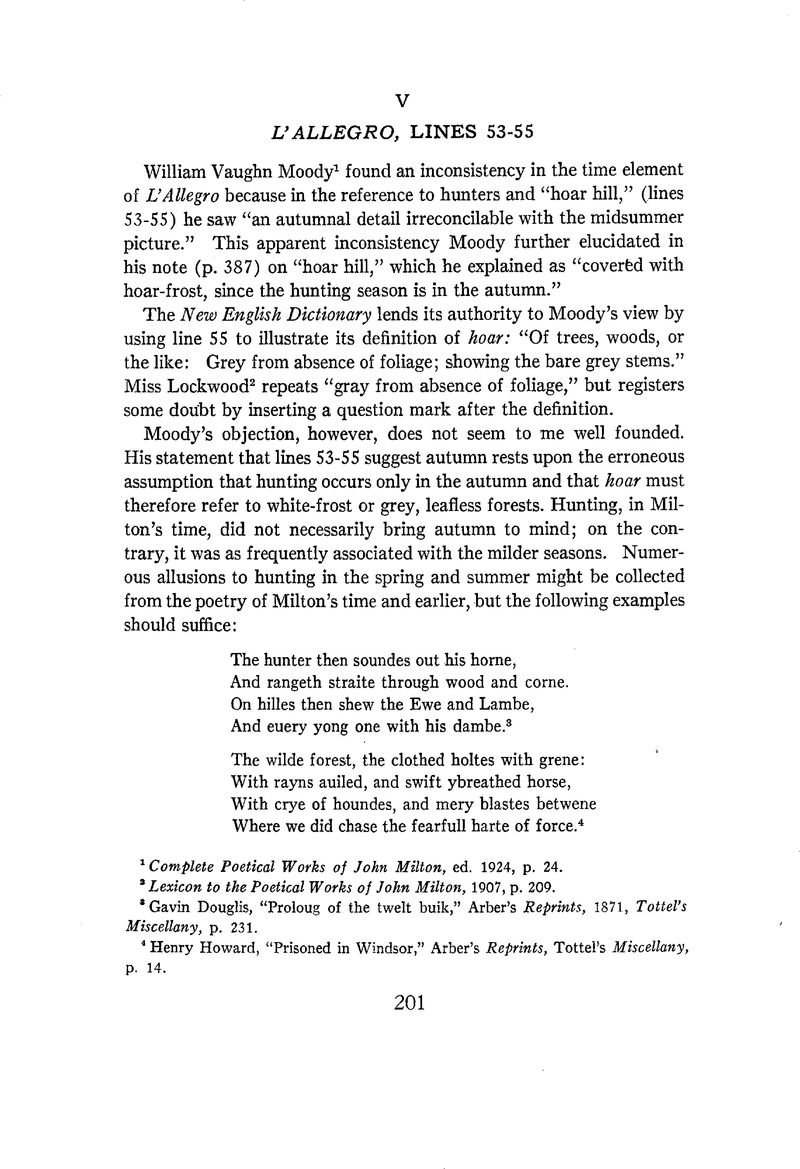No CrossRef data available.
Published online by Cambridge University Press: 02 December 2020

1 Complete Poetical Works of John Milton, ed. 1924, p. 24.
2 Lexicon to the Poetical Works of John Milton, 1907, p. 209.
3 Gavin Douglis, “Proloug of the twelt buik,” Arber's Reprints, 1871, Tottel's Miscellany, p. 231.
4 Henry Howard, “Prisoned in Windsor,” Arber's Reprints, Tottel's Miscellany, p. 14.
5 Wm. Browne, Britannia's Pastorals, Book 1, Song 2, 11. 827-834.
6 Percy's Reliques, ed. 1876, I, 183 and 306.
7 “Fantastickes,” in Works in Verse and Prose of N. Breton, ed. A. B. Grossart, 1879, II, 6.
8 Noble Art of Venerie or Hunting, London, 1611, p. 74.
9 Ibid., pp. 96-97.
10 Ibid., p. 175.
11 Percy's Reliques, ed. cit., II, 302. The glossary renders the phrase, “hoar hills;” E. K. Chambers, English Pastorals, 1895, p. 5, interprets by “grey hills.” Chaucer, R.R. 6996, uses “holtes hore.” Wordsworth, in a sonnet, “Composed on a May Morning,” speaks of “turf yet hoar with sleepy dew.”